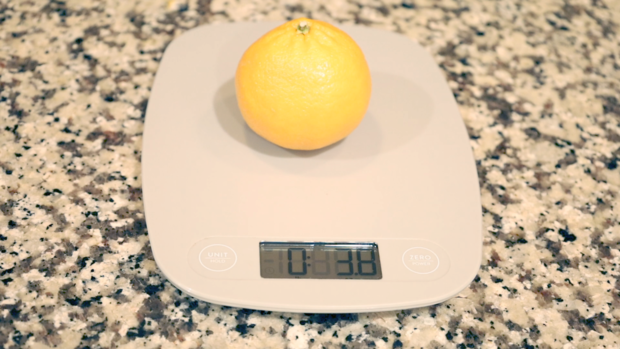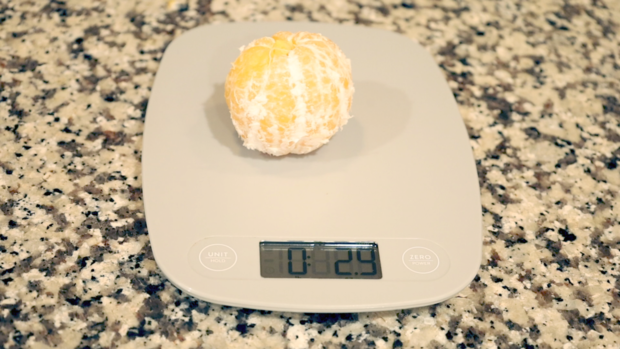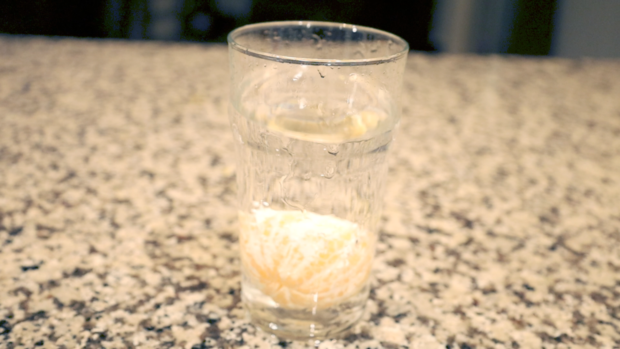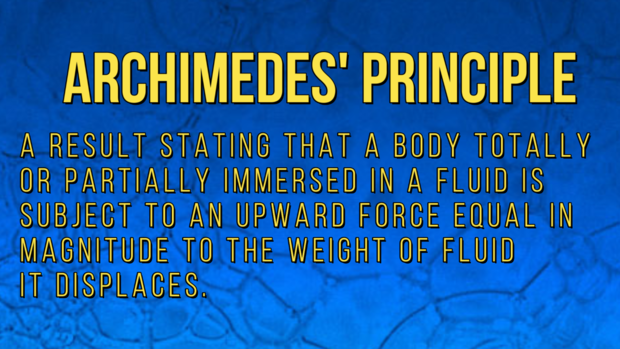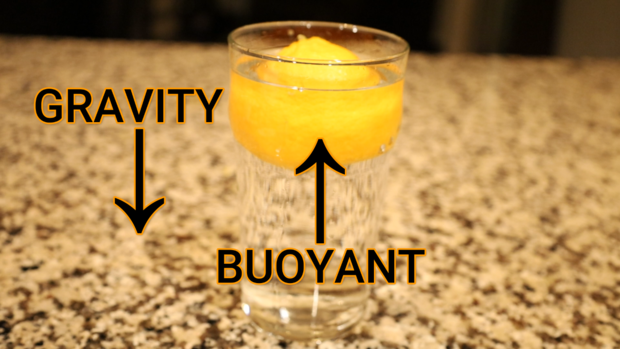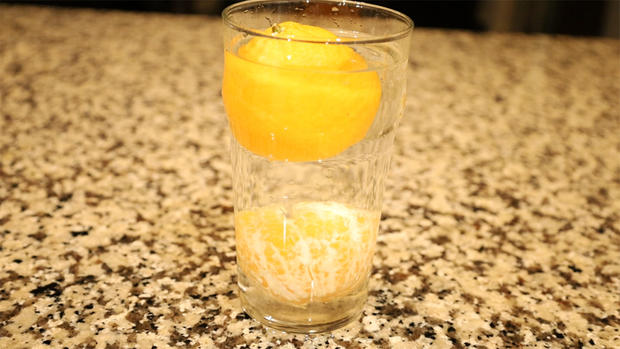Hey Ray! Explaining The Archimedes Principle
PITTSBURGH (KDKA) -- Sometimes, physics seems weird, and our experiment today is no different. Let's perform the experiment first, then we'll explain. This experiment is an easy one, too. All you need is a scale, an orange and a glass of water that is big enough for the orange to fit in.
Weigh the orange. Here our orange is 3.8 ounces.
Now drop it in the water. You will notice it floats, since this 3.8 oz orange is less dense than the water.
Next, let's peel the orange and weigh it again.
Now this orange is 2.9 ounces. Almost a full ounce lighter than when it had its peel.
Now, when we drop this orange in the water, will it float higher in the water or sink?
When we drop this in the water will it float the same, float higher or sink?
Even though it is lighter, it sinks. A result that is probably different than most would expect.
To find an answer of how this works, we have to look to Archimedes, an ancient Greek mathematician and inventor. He came up with the Archimedes Principle which is a physical law of buoyancy. It states that any "body" completely or partially submerged in a fluid and at rest is acted upon by an upward, or buoyant force, to the magnitude of which is equal to the weight of the fluid displaced by the body.
I know that may sound confusing. Simply, whether the orange floats in a fluid, or not, depends on a couple of things.
First, the gravitational force pulling the orange down. Second, there is a buoyant force, or a force pushing the orange back up in that fluid. When you put the orange in the fluid, these two forces work against each other. Gravity pulls the orange down. Then the buoyant force pushes upward with a weight that is equal to how much water was displaced by the orange.
With the peel, the orange can displace more water, increasing its buoyancy enough to float. There are also tiny air pockets in the orange peel helping to reduce its density.
When you peel the orange, it doesn't displace enough water to beat the gravitational force that is pulling the orange downward, meaning it sinks, even though it is lighter.
